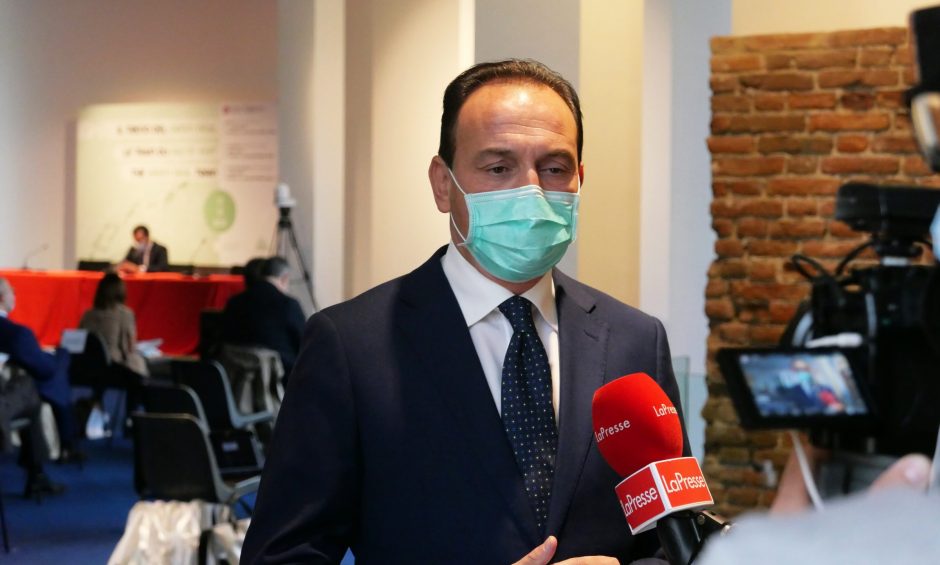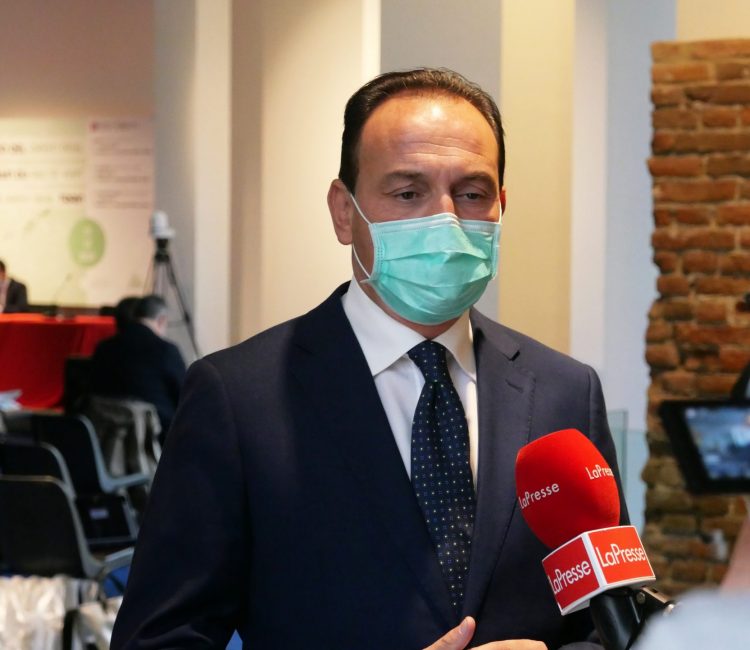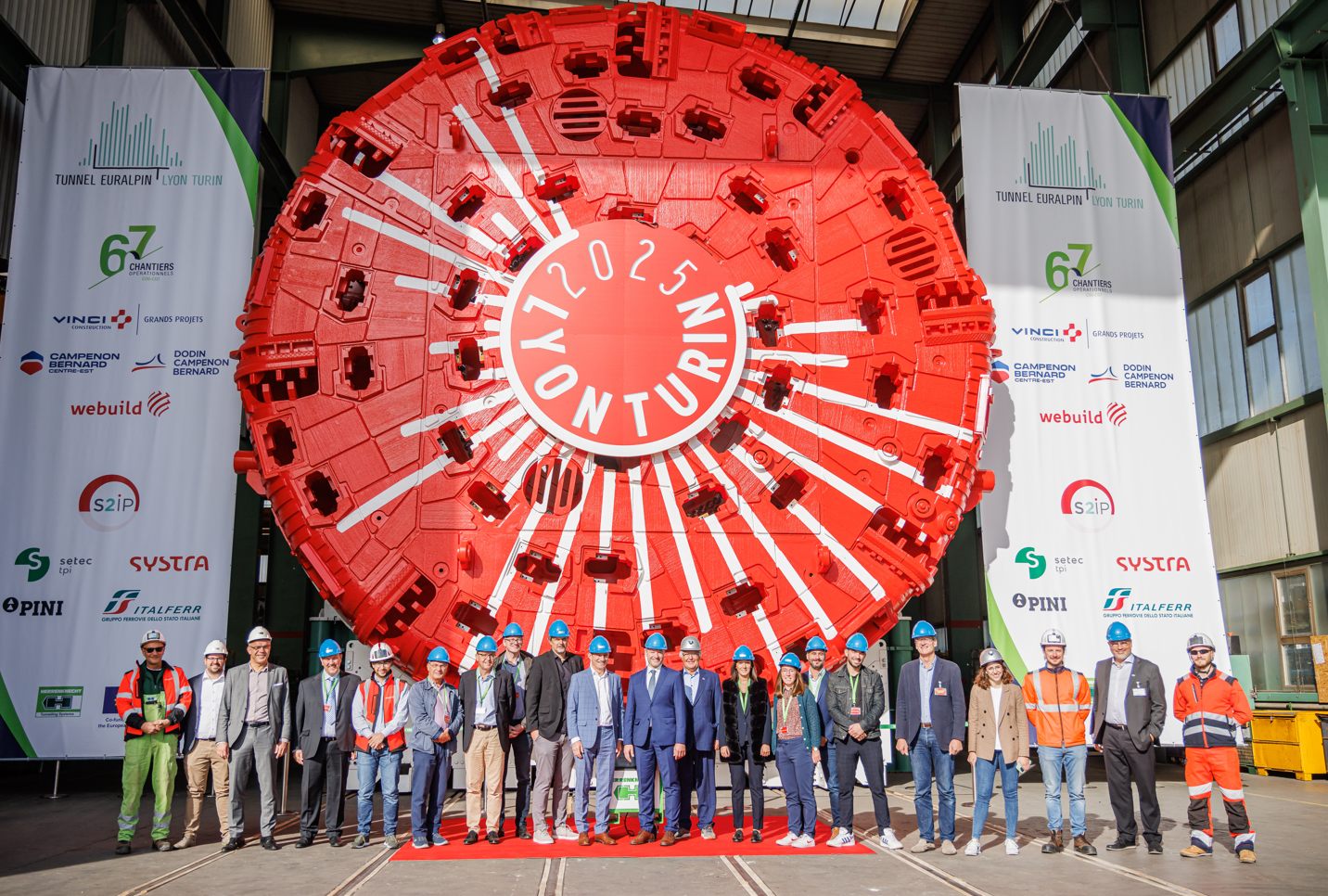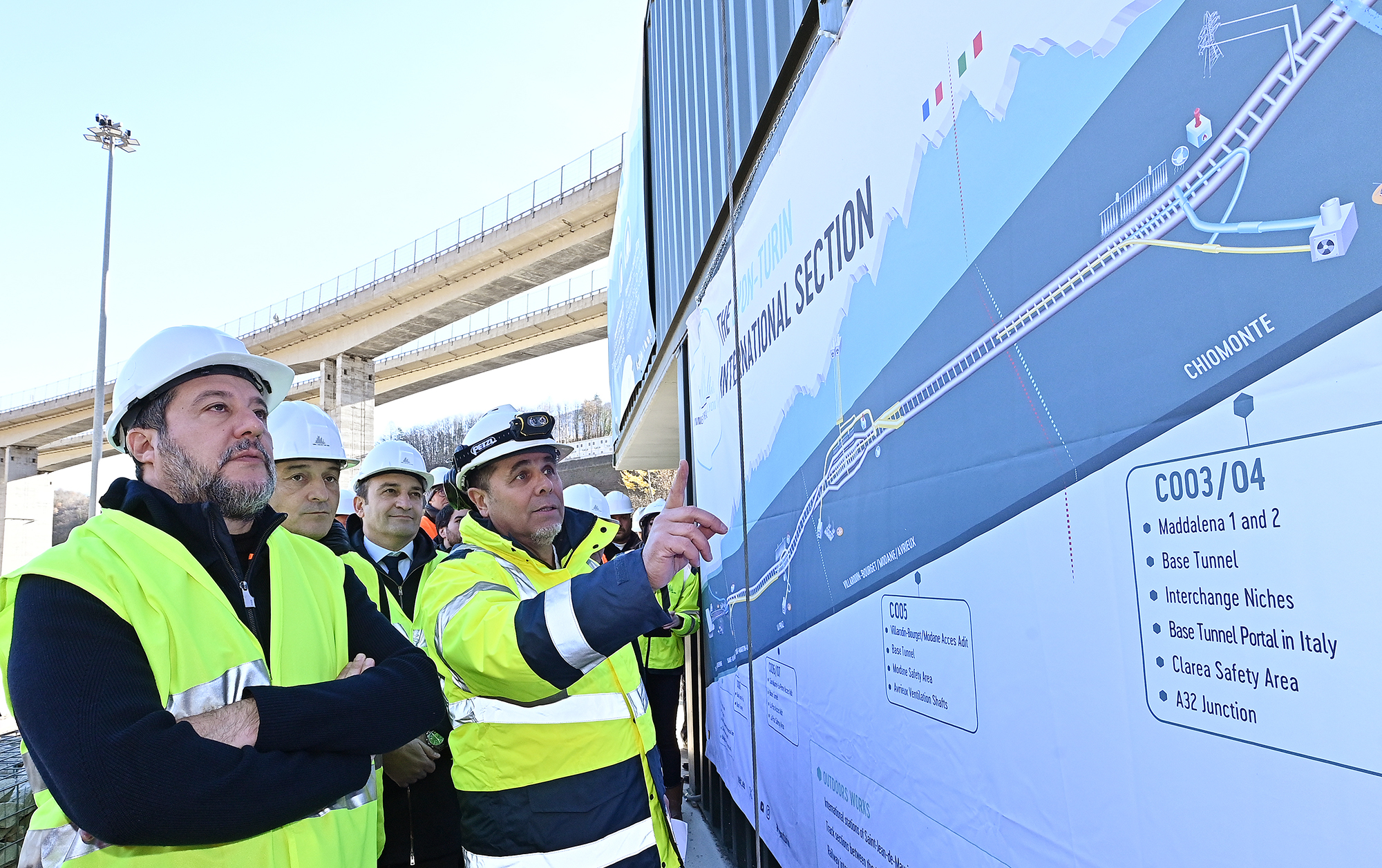President Cirio: “A work of the future”
The Lyon-Turin project “must go ahead, this great work is part of our future. I strongly believe in raising public awareness from the bottom up: let’s also go to schools to explain what the Tav (high-speed train) will actually mean. Let’s explain it to children and young people because the project will become an infrastructure at their service”. These were the words of the President of the Piedmont Region, Alberto Cirio, as he opened the conference entitled The Green Deal train. The construction sites of main projects as an opportunity for Piedmont and Auvergne-Rhône-Alpes regions, organised by the Piedmont Region in collaboration with TELT on 15 October 2020 in Novara. Support for the Lyon-Turin project also came from beyond the Alps with a greeting from the Director of International Relations of the Auvergne-Rhône-Alpes Region, Bruno Chiaverini, participating remotely from Lyon.
Sopinski (Dg Move UE): “It is essential to link the EU’s transport policy to the Green Deal”
Concerning the benefits of the European transport network, “there is a very clear link between railways and the Green Deal. Today I am speaking on behalf of the European Coordinator, but also on behalf of the Directorate-General: we want to link the Green Deal to the European Union’s transport policy because transport accounts for 25% of pollutant emissions”, said Wojciech Sopinski, advisor of the European Coordinator of the Mediterranean Corridor, Iveta Radicova. As such, it is necessary to think about new ways to move goods and people. “We need to shift towards a new, more ecological transport model, and trains are one of the most ecological modes, not only for passengers but also for freight”. In this context, “the Mediterranean Corridor is the only one of the other nine routes to cross the European continent so decisively from east to west, passing through six countries over a distance of more than 3000 km. This corridor is very well connected, as there are other corridors and networks that cross it: it has 70 key junctions and constitutes a global network, generating a great deal of traffic, especially for freight. The base tunnel is fundamental not only for the Mediterranean Corridor, but for the whole of Europe, and Europe’s commitment will remain clear and continuous”, continued Sopinski. Furthermore, the EU Coordinator’s advisor pointed out that the base tunnel and its access routes “connect not only Turin and Lyon, but also give wider prospects for freight and passengers between Milan, Paris and Rome. It is a key element of these junctions to remove heavy goods vehicles from roads and road tunnels, otherwise we will have all these heavy goods vehicles on the roads”, she concluded.
The Director General Virano: “The Green Deal travels by train”
In his speech, TELT’s Director General, Mario Virano, defined the launch of the Green Deal as “a momentous event because it means that the environmental issue becomes the new paradigm of the economy. And this carries with it the message that the Green Deal travels by train”. In this sense, the main works “are instruments of the new environmental policy; they are an integral part of the Green Deal”, Virano stressed.
Councillors Marnati and Gabusi: “Piedmont needs the Lyon-Turin project”
The moderator for the day was the Regional Councillor for the Environment, Matteo Marnati, who reiterated: “Courage and vision are needed not only for the present, but for future generations. Piedmont needs this kind of infrastructure, the major European corridors because, if we do not succeed in implementing them, we risk being cut off from Northern Europe and from markets that are not slow to take advantage of opportunities”. For the Piedmont Region’s Transport Councillor, Marco Gabusi, “the debate concerning these main projects is a central one within the framework of sustainable development in our Region and is an issue that has been misunderstood and exploited on many occasions”.
Meteorologist Giuliacci: “With railway projects we fight pollution”
Meteorologist Andrea Giuliacci explained: “It is important to transfer traffic from road to rail because we are facing a major problem – climate change – which is mainly driven by greenhouse gas emissions. If we want to reduce them we must necessarily shift fright transport from road to rail”. He concluded: “This is why all the projects that aim to shift the freight transport from road to rail are important”.





